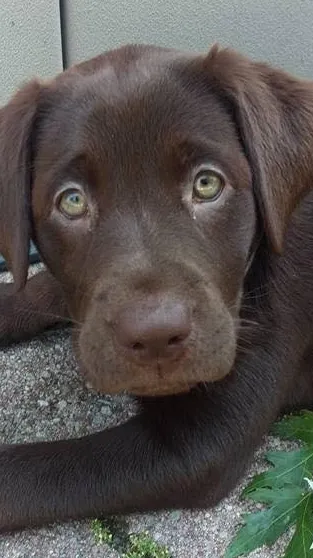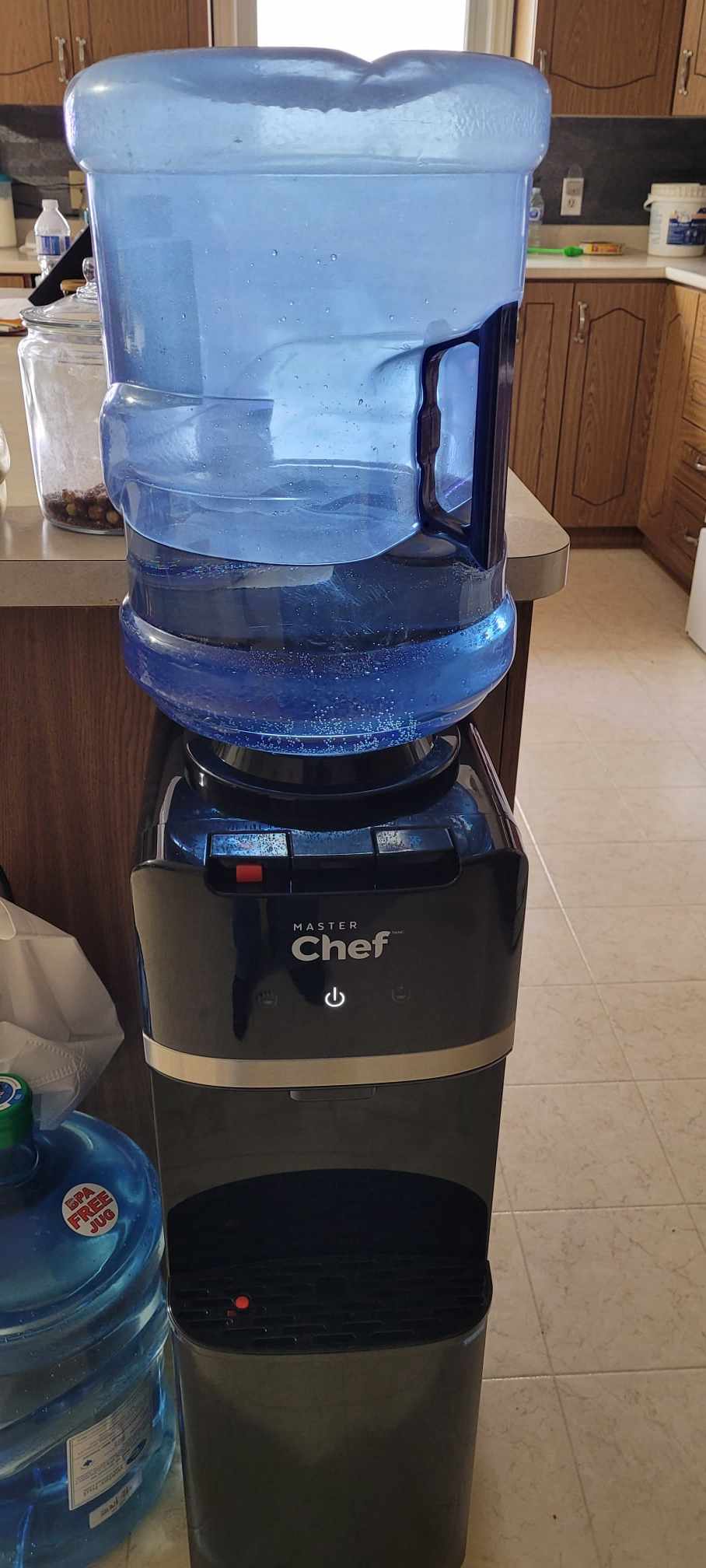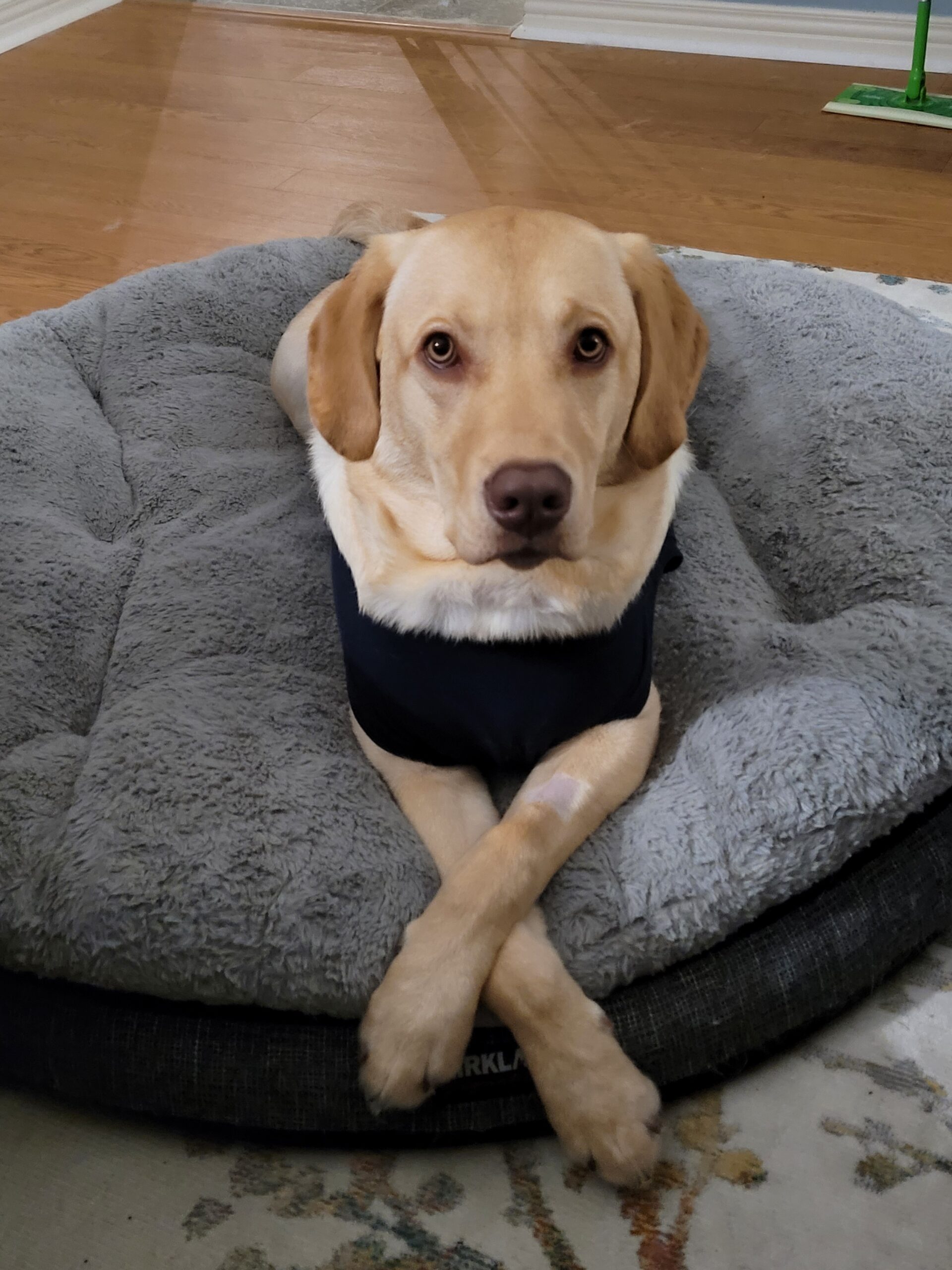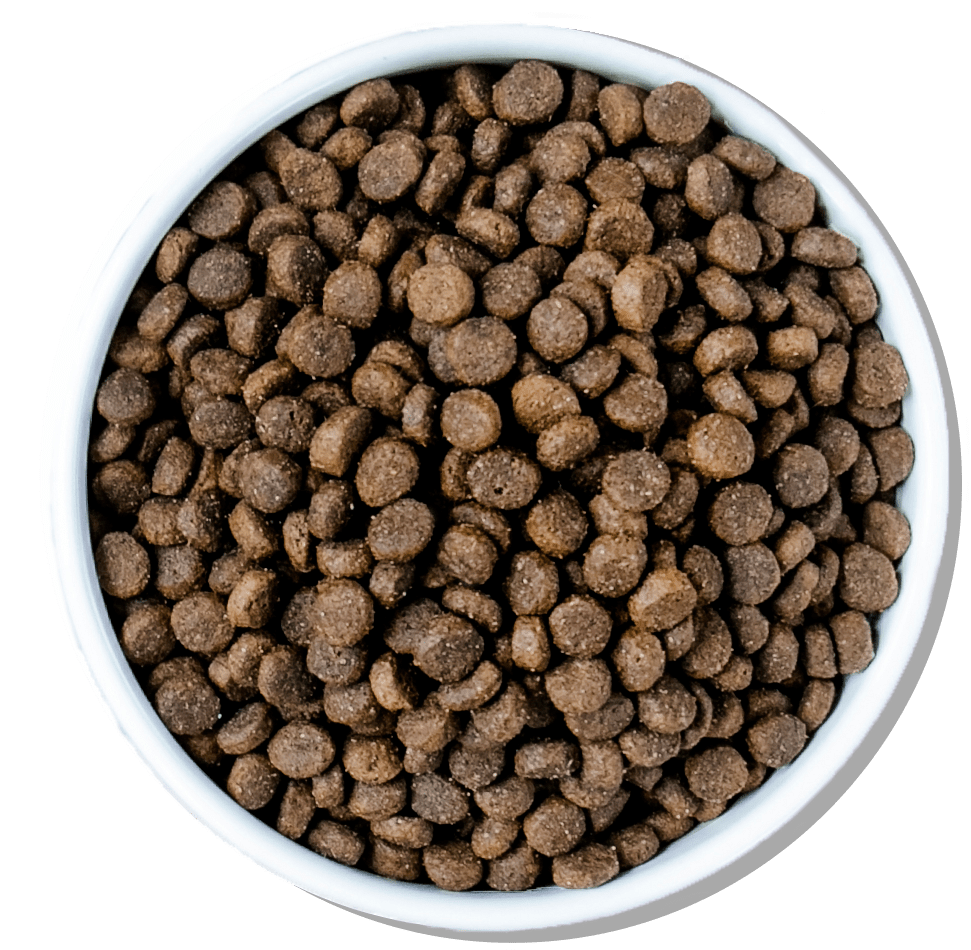Do Labrador retrievers grieve when an animal dies in the home…..and how to help them cope.

Ways for humans to deal with a loss like this can be found here. For this post we will deal specifically with dogs dealing with the loss.
We have all seen our dogs form an incredibly strong bond with their humans, the children in the home, another dog and even another cat or other animal. For most dogs this bond is the same regardless of what type of animal it is that has passed away. It may even be a human gone away to school who is the cause of the symptoms interpreted as grief in your Lab but nonetheless, they do miss those who leave.
If you have ever had two dogs in the home and one passes away you have likely witnessed this. Signs you may notice can include a loss or decrease in appetite, they can appear to have less or no energy, their sleeping habits may change or be disrupted or they may appear withdrawn. Yes, cats can also experience these same signs and grieve for the loss of a companion animal or even loss of a dog, but that will be a discussion for another article. Some Labs may whimper or become distant as part of their grieving process, not wanting to be around anyone while others may become clingy and not want you to leave.
In one particular study conducted by a team of researchers headed by Jessica Walker of the New Zealand Companion Animal Counsel who collected data pertaining to 159 dogs and 152 cats, the researchers tested to see if allowing the grieving pets to sniff the deceased friend with the thought that it may understand that the pet dying was gone and be able to associate a sense of the dog’s life ending. The researchers found that the surviving pets who had an opportunity to sniff had no behavioral differences from those who did not have an opportunity to sniff.
The conclusion drawn is that dogs do not have a concept of death as being a final separation from the one they bond with. This parallels the cognitive ability of a child younger than 4 years old. They understand someone is gone but cannot understand that as death rather they understand the of sense of loss of companionship and friendship of their loved one. It is the experience of these feelings that causes the signs we interpret as grieving.
So how can we help our Labs deal with the loss of someone they love as much as any family member? Here is a list of things to consider. It is important to understand these can help any dog just not a Labrador Retriever.
1. Try to keep their routine as close to being the same as possible. Things like waking up, food timings, play time, walks, bed time, and grooming should all be kept the same. The less disruption the better as they will feel safe with the familiarity of their routine.
2. Allow time for a new social structure to evolve. If you had more than two animals, even if some of them were cats or another animal, the dynamics of your surviving Lab’s environment will change. There may be some growling between dogs or some hissing among cats but this is normal and required for them to reset their social structure. Tolerate any reasonable bickering and understand what it is.
3. If they lose their appetite keep them on the same food. This is part of the routine and changing their food will be a further disruption if you do so. If they don’t eat, keep the food in the fridge and give it to them later. If your Lab doesn’t eat for more than a day or so they may have a separate medical issue that requires looking at, take them to your Vet. If they eat a part of their food that’s ok, as mentioned put the rest away and feed it to them later. It is important however that they continue drinking and urinating regularly. If they quit drinking see the vet ASAP. Dehydration can be quite serious.
4. Give ample affection and monitor their situation closely. You will need to be aware of the food and water they are getting and you should see some gradual acceptance to their new situation. The symptoms of grief are normally not debilitating so if you see your Lab’s situation deteriorating then there could be an unrelated medical issue that needs diagnosing.
5. Don’t reward the behaviors related to the depression. It can be easy to want to feed away the sadness like Grandma used to do but training this out of them will help a speedy recovery. The premise is the same as positive reinforcement training. Reward desired behaviors and ignore undesired ones. In case you aren’t aware of this, ignoring is complete ignoring meaning no eye contact, no touching and no talking. Our Labrador Retriever puppies are very eager to please so as soon as you don’t give them any attention they will learn to do the things you will give them attention for.
6. Groom them daily. If this is not already a part of your daily routine then make it so. The 5 or 10 minute focus, brushing, and massaging them will help to soothe them and put their focus on in the moment pleasure.
7. Carefully think about bringing another pet home. This will depend on the personality of your dog. Some dogs who are very social and would love to play with another dog right away should be allowed to do so. On the other hand those dogs who are not so social should be given all the time they need before you bring a new animal into the picture. Give some careful thought to the personality of your dog and weather or not they would appreciate a new mate right away. For some this is the key to a speedy recovery but to others a new pet may not be so welcome.
8. In time all things pass. Who said that? I’m not sure but accept that this is their life, and yours right now and live in the moment. Take each day one at a time, you will know when the time is right for change and the healing process is complete.
9. If you make the tough decision to euthanize your pet then you may decide to have your other pets around when this happens. As I mentioned earlier Labs can’t understand death as we do but it might help them so they aren’t walking around the house looking for their deceased buddy. More importantly, this may help you who does have an understanding of death sort out the new social order in your home. I realize that the focus of this article is to be aware of how your dog deals with the issue but you are the conductor of the house. Be sure you have both feet on the ground so that you can be there for your animals.
If you try all of this and you find your chocolate lab, or black lab, or even the remaining pets in the home having great difficulty dealing with the loss then you may want to consider contacting a veterinary behaviorist. These professionals will be able to observe your situation in the home with all of your family pets and can provide concrete actions for you to implement. Not everyone can keep it together when a pet dies so having an expert there to help may work wonders for you and the rest of your pets and help to get the family back on track quickly.
Sometimes time is the only thing that will work when a dog passes away. The saying time heals all wounds surely rings true, it’s just very tough in the meantime. We understand that and wish you the best for making it through your tough time.



